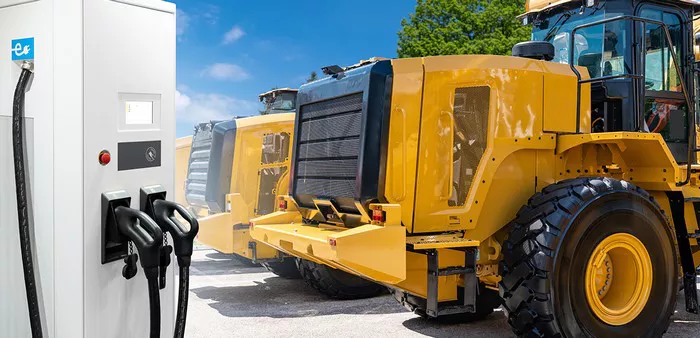In a collaborative effort to reduce carbon emissions and foster sustainability, government officials from six U.S. cities and Montreal, Canada, have united to advocate for the use of electric construction equipment across North America.
Leaders from Austin, Texas; Boulder County, Colorado; Los Angeles, California; Montreal, Canada; New York City; Philadelphia, Pennsylvania; and San Diego, California, have pledged to promote the adoption of electric construction equipment by advancing supportive programs and policies. These municipalities, which together spent over $9.57 billion on construction equipment in 2023, are committed to transitioning their capital construction projects toward more sustainable solutions.
The commitment aligns with broader global goals, including the Paris Climate Agreement, as many of the world’s largest cities work toward reducing their carbon footprints. While the availability of electric construction equipment remains limited in North America, this new coalition aims to stimulate market growth and accelerate the integration of electric machinery in construction practices.
For example, Austin has set a target to reduce carbon emissions from municipal purchases by 50%, with plans to electrify its fleet, which currently includes around 300 electric vehicles (EVs). The city also aims for EVs to account for 40% of its total vehicle miles. Similarly, Los Angeles has made significant progress by purchasing all-electric equipment for city street services and construction projects. The city is also developing contract terms to support the integration of electric equipment into public works initiatives.
Despite the growing availability of electric construction equipment in some global markets, coalition members acknowledge that North America still faces significant challenges in scaling up the market. The officials emphasized their role in fostering industry partnerships and building demand for electric machinery within their jurisdictions.
“As suppliers expand market availability, we are committed to using electric construction equipment on applicable projects and advocating for strategies to increase its adoption,” the coalition’s leaders stated. “We urge suppliers to ramp up the availability of electric equipment and the necessary infrastructure, and to engage with our coalition in this transformative effort.”
Related topics:

